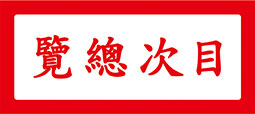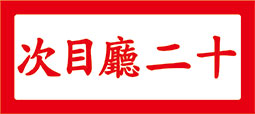Before the 38th year of the Republic (1949), the Chinese Youth Party was one of the largest political parties in China. Its party manifesto embraced nationalist and anti-communist policies. After 1949, the Chinese Youth Party has remained active in Taiwan. A number of politicians from the Democratic Progressive Party are former members. When President Chiang Ching-kuo (蔣經國) dissolved political party restrictions in 1987, some of those formerly in the Chinese Youth Party joined the newly formed Democratic Progressive Party.
Prof. Li Huang was a founding member of the Chinese Youth Party as well as former Chairman. During the War of Resistance Against Japanese Aggression, he was a member of the National Political Council. In June 1945 he was a member of the Chinese Delegation who signed the United Nations Charter. In November the following year he was a member of the National Constituent Assembly. After mainland China fell to the communists, he moved to Hong Kong and eventually relocated to Taiwan. Prof. Ho Kwong-yim, an erudite scholar of our time, is a student of Prof. Li Huang. He composed this article to reminisce his teacher, and to document the Foreword he wrote for him, fearing that the virtues and achievements of his teacher may fade from memory with the passing of time.
Curatorial and Editorial Department
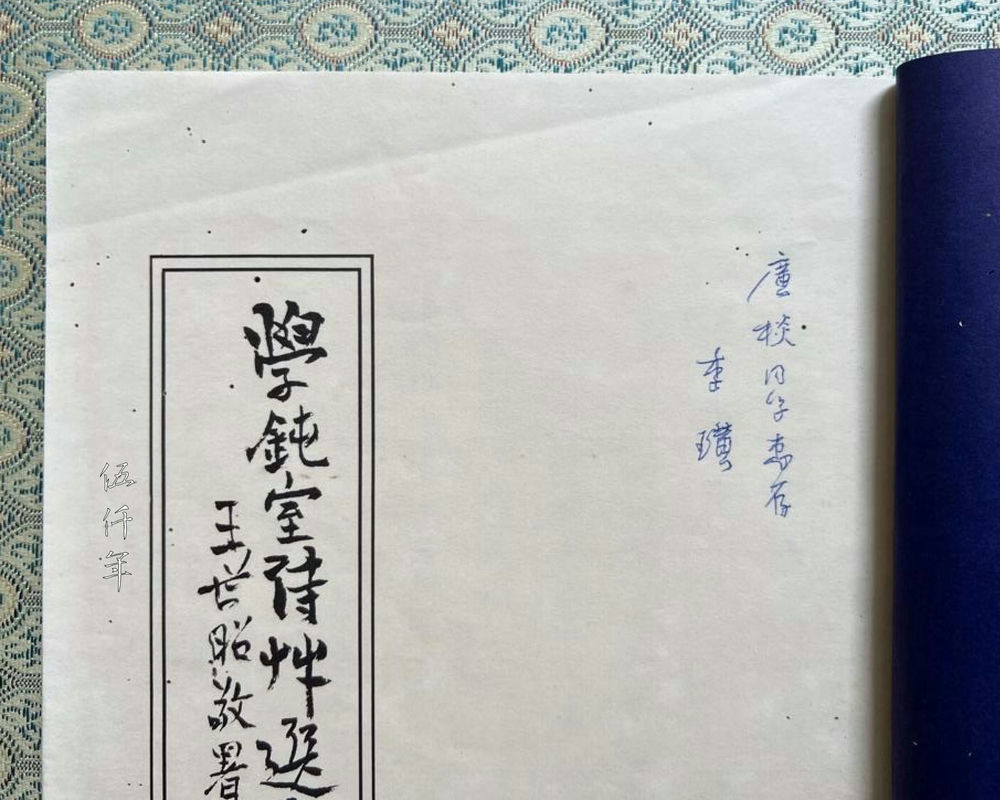
Inscription by Prof. Li Huang
My teacher Prof. Li Huang (李璜 1895-1991), tzu Yu-ch’un, hao Hsüeh-ch’un, Pa-ch’ien, native of Szechwan Province, was one of the founders of the Chinese Youth Party. Together with Tseng Ch’i (曾琦) and Zso Shun-sheng (左舜生), they were known as the Three Giants of the Chinese Youth Party because of their extensive contributions.
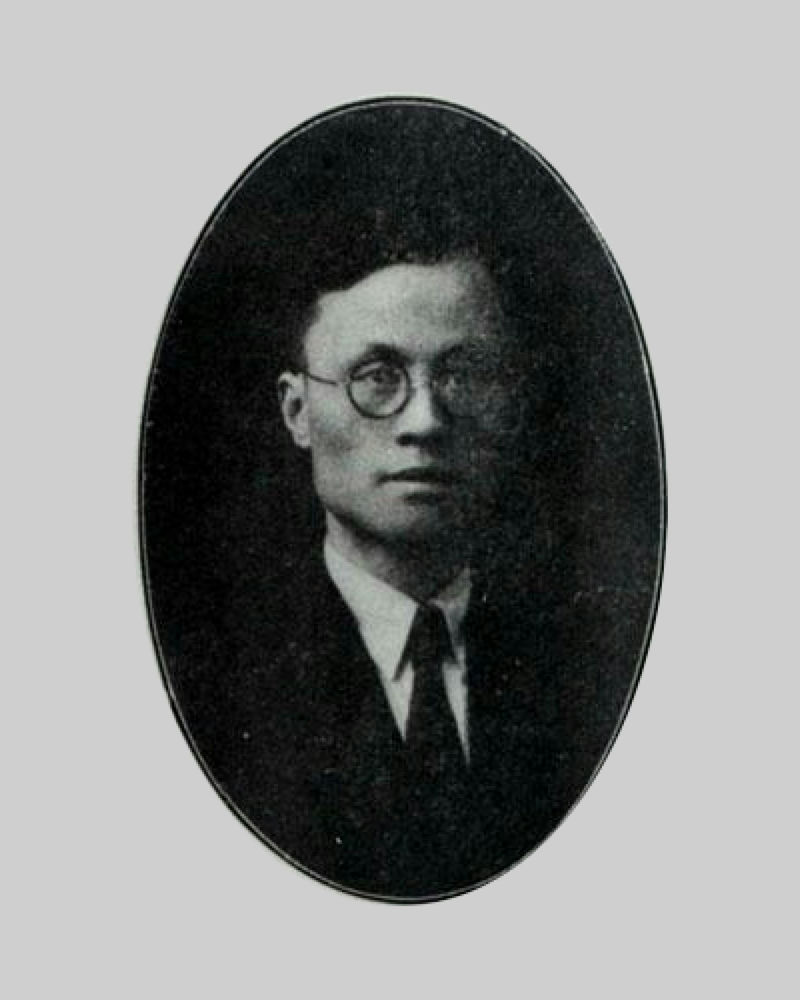
Portrait of Prof. Li Huang
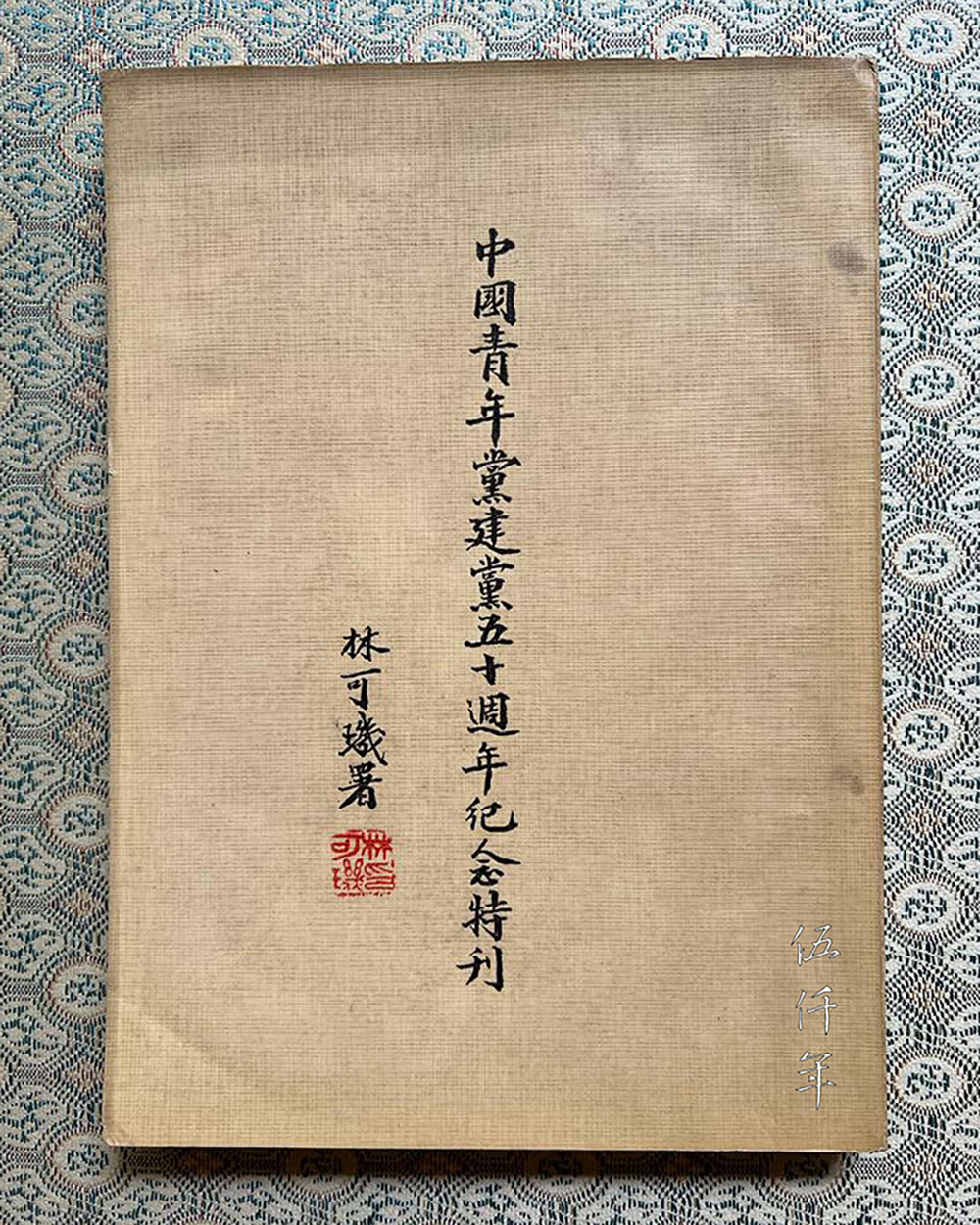
Commemoration publication on the 50th Anniversary of the Chinese Youth Party
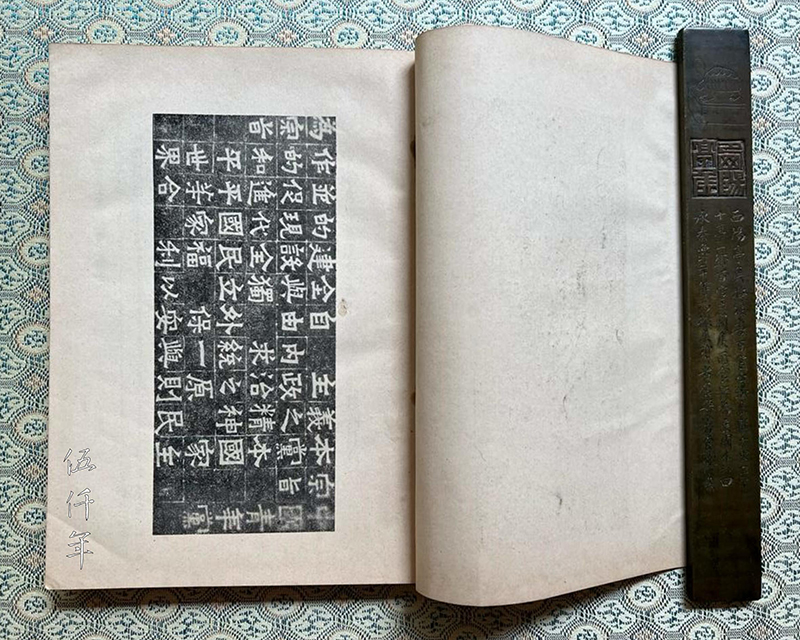
Mission of the Chinese Youth Party in the commemoration publication
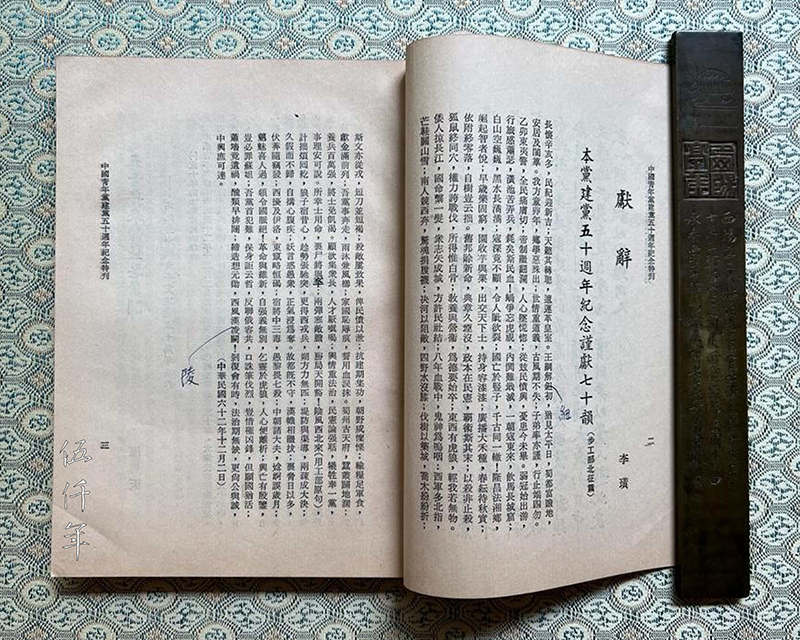
Epic Poem by Prof. Li Huang in the commemoration publication
In 1908, my teacher Prof. Li Huang, then thirteen, enrolled at the College for English and French Civil Servants of the Bureau of Foreign Affairs in Ch’eng-tu, Szechwan Province. From 1914 to 1916, he studied French at Aurora University in Shanghai. In March 1919, he enrolled at the University of Paris in France at the age of twenty four. In September 1924, he completed his studies and returned to China at the age of twenty nine. In the beginning, he taught at a number of universities in Peking. During this time, Prof. Lo Hsiang-lin (羅香林 1906-1978) took a course under Prof. Li Huang when he was a student at the History Department of the National Tsing Hua University. In their later years, both taught at the Research Institute of Chinese Literature and History of Chu Hai University in Hong Kong. Prof. Lo continued to address Prof. Li by the title teacher, a testimony of their deep academic friendships.
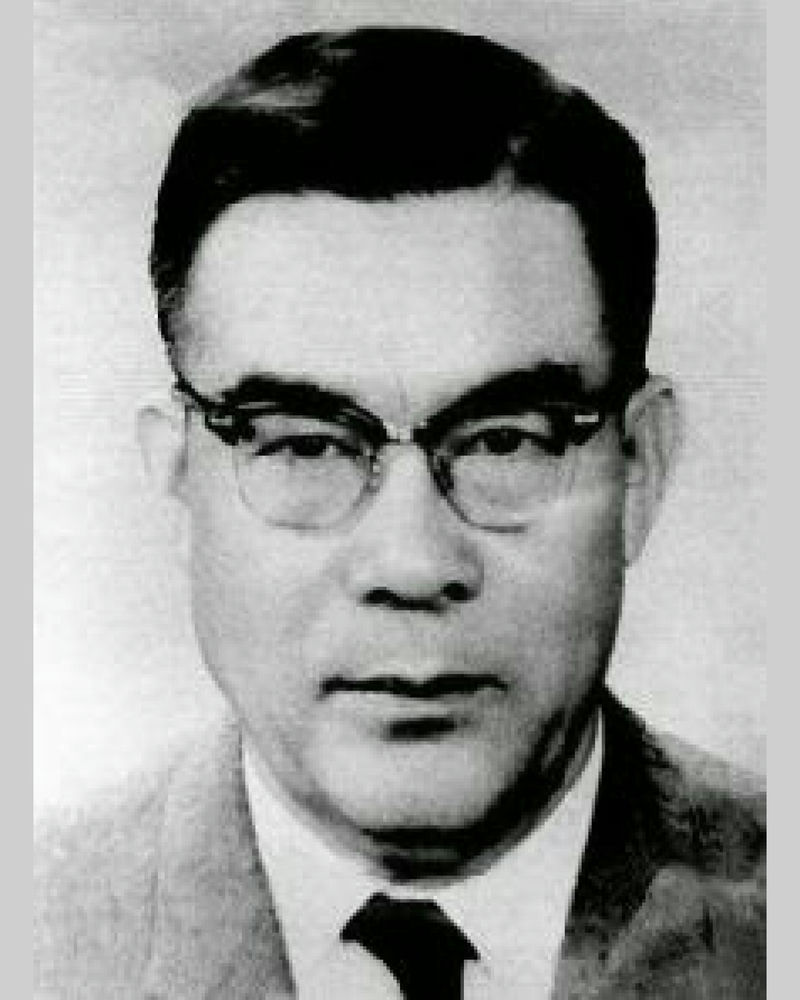
Portrait of Prof. Lo Hsiang-lin
In 1972, I enrolled at the Research Institute of Chinese Literature and History of Chu Hai University. At that time, Prof. Lo Hsiang-lin was the director and Prof. Li Huang was a professor at the Research Institute. I attended the master’s degree course of the literature class, for I had already published An Incapacious View of Chinese Studies (Tu-shu kuan-k’uei 讀書管窺) and The Chronological Index of Writings on Oracle Bone Inscriptions by Mr. Yang Shu-ta (Yang Shu-ta hsien-sheng chia-ku-wen lun-chu pien-nien mu-lu 楊樹達先生甲骨文論著編年目錄). These two books were recommended and presented to the Research Institute by Prof. T’u Kung-sui (涂公遂 1905-1991). Prof. Yang Shu-ta (楊樹達 1885-1956) also taught Prof. Lo Hsiang-lin when he was a student at the National Tsing Hua University in Peking. Due to this connection, I was fortunate to receive the attention of Prof. Lo the moment I entered the Research Institute.
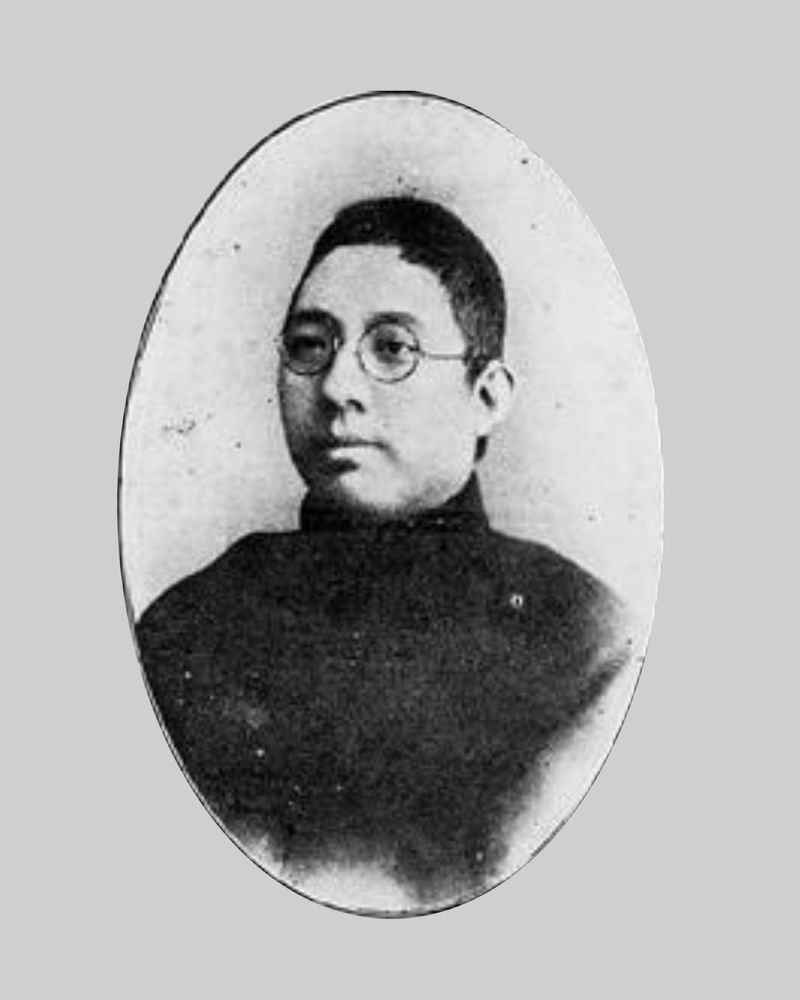
Portrait of Prof. Yang Shu-ta
In the first year of the master’s degree course, I earned high grades and came first in the literature class. I was also awarded a scholarship. In that year, the Research Institute organized an essay presentation, its topic was set by the director. The title put forward by Prof. Lo was: The Relationship of Han Poetry and the Literature of Ch’u Kingdom (Han-fu yü Ch’u wen-hsüeh chih kuan-hsi 漢賦與楚文學之關係). I was the designated presenter. The presentation took place at the Research Institute, chaired by Prof. Lo Hsiang-lin, the director, and evaluated by Prof. Li Huang. I recalled that the comments by Prof. Li Huang on my content, form, writing technique, mannerism, oratory, were all affirmative and favourable. This essay was later compiled into Series One of the Collective Works from the Academic Society of the Research Institute of Chinese Literature and History of Chu Hai University (珠海書院中國文學、歷史研究所學會叢刊之一). The title of the published book was calligraphed by Prof. Lo Hsiang-lin, the director, and the foreword was written by Prof. Wang Shao-sheng (王韶生 1904-1998).
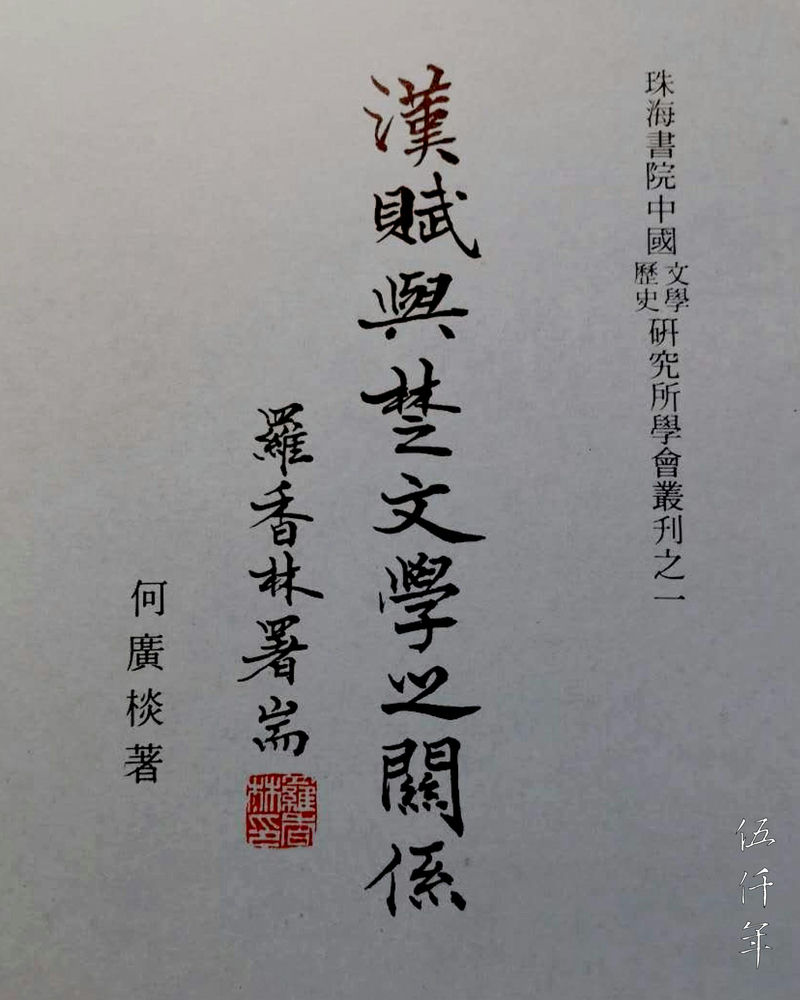
The Relationship of Han Poetry and the Literature of Ch’u Kingdom by Prof. Ho Kwong-yim
This event highlights the unmerited favours lavished by Prof. Li Huang, Prof. Lo Hsiang-lin and Prof. Wang Shan-sheng. In the following year, I studied under the tutelage of Prof. Wang. The title of my thesis was: Studies of Li Ch’ing-chao (Li Ch’ing-chao yen-chiu 李清照研究). I came first in the graduating class and received my master’s degree. Upon the recommendations of Prof. Li and Prof. Wang, I was retained at the Research Institute as a lecturer by Prof. Lo, and embarked on the decades long journey of teaching at universities and research institutions, research and education.
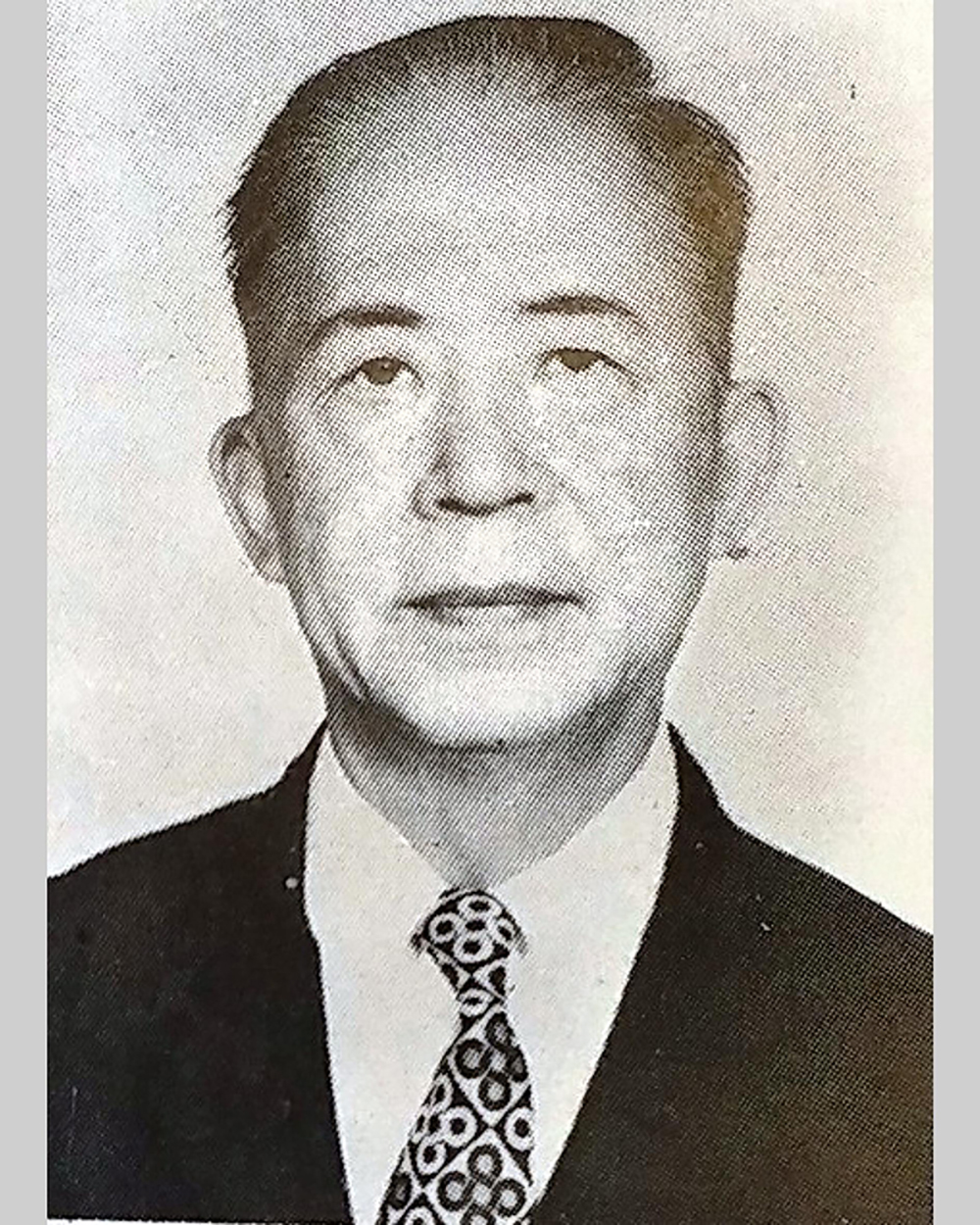
Portrait of Prof. Wang Shao-sheng
After completing the master’s degree, I was accepted by the doctor’s degree class at the Research Institute of Chinese Literature and History of Chu Hai University. I studied under the tutelage of Prof. Lo Hsiang-lin, and the area of research was the scholarship of Prof. Ch’en Yin-k’ei (陳寅恪 1890-1969). To formulate a foundation for my research, I began to compile The Chronological Index of Writings by Prof. Ch’en Yin-k’ei (Ch’en Yin-k’ei hsien-sheng chu-shu mu-lu pine-nien 陳寅恪先生著述目錄編年). This was later compiled into Series Four of the Collected Works from the Academic Society of the Research Institute of Chinese Literature and History of Chu Hai University (珠海書院中國文學、歷史研究所學會叢刊之四). The title of the published book was calligraphed by Prof. Lo Hsiang-lin, the director, and the foreword was written by Prof. Li Huang. When Prof. Li was studying in Paris, Prof. Ch’en Yin-k’ei was also a student there. Their friendships started early and they knew each other well. I was fortunate that Prof. Lo asked Prof. Li to write a foreword on my behalf. In his later life, Prof. Li published the Memoir of the Studio of Hsüeh-ch’un (Hsüeh-ch’un Shih hui-i-lu 學純室回憶錄), a book of substantial content. The publisher is Ming Pao Publications Ltd. However, this Foreword seems not to be included in his Memoir. It is a forgotten piece of writing. Despite its length, I hereby reproduce the Foreword, to leave traces for remembrance.
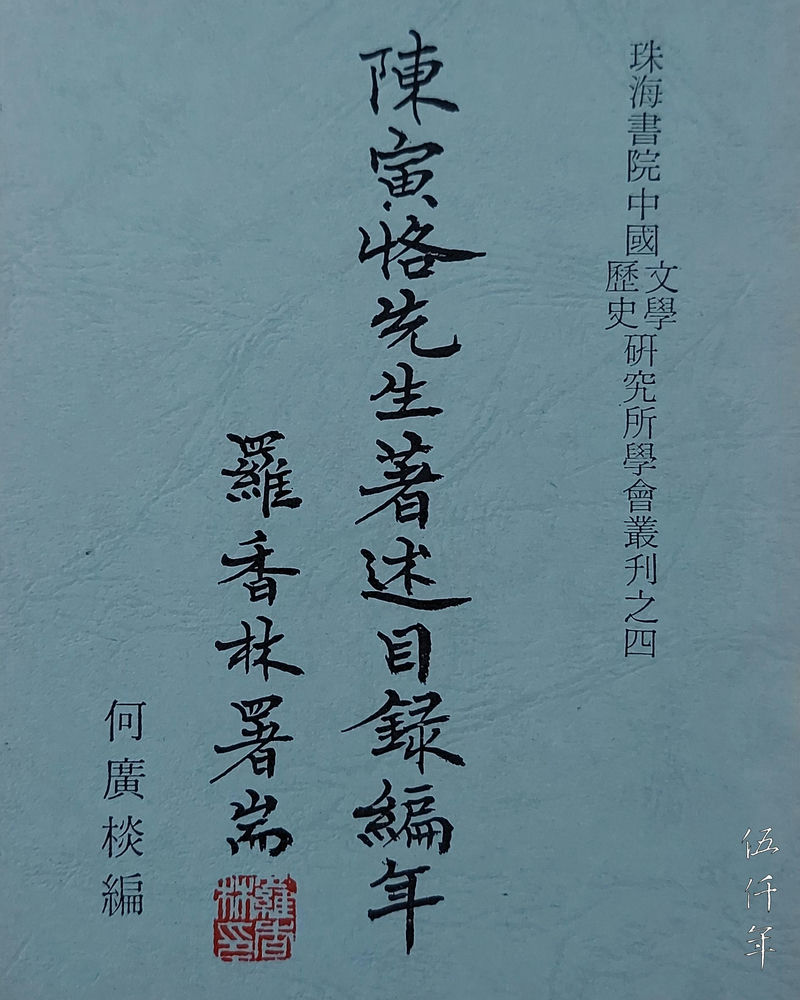
The Chronological Index of Writings by Prof. Ch’en Yin-k’ei by Prof. Ho Kwong-yim
Foreword by Prof. Li Huang:
“In recent years, I have held the post of professorship at the Research Institute of Chinese Literature and History of Chu Hai University. On the first day of my course titled Sinology in Europe and America, it is customary for me to persuade research students that they must attain the duel abilities of broad erudition and deep scrupulousness in academic studies. Here are two passages I generally adopt:
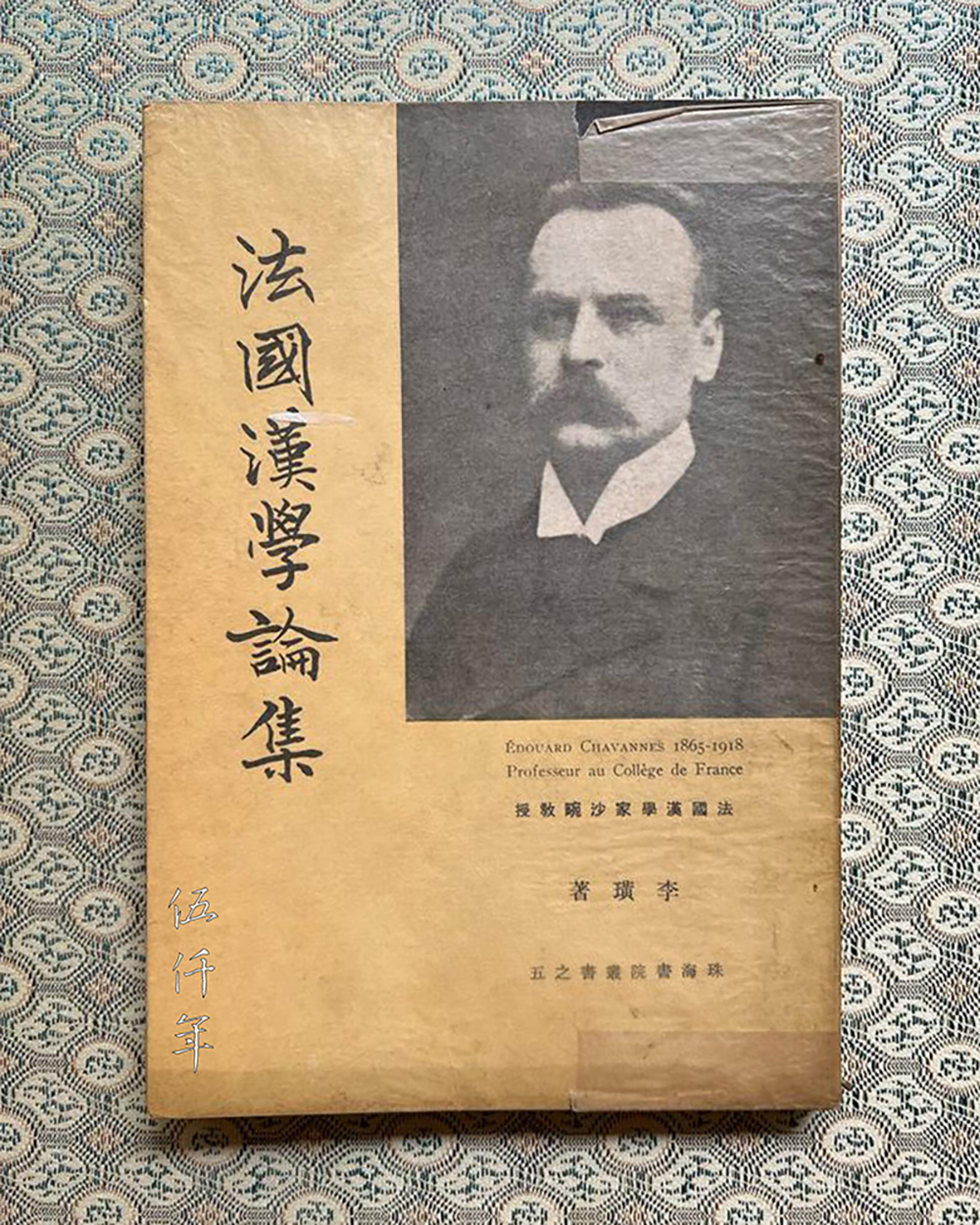
Writings on French Sinology by Prof. Li Huang
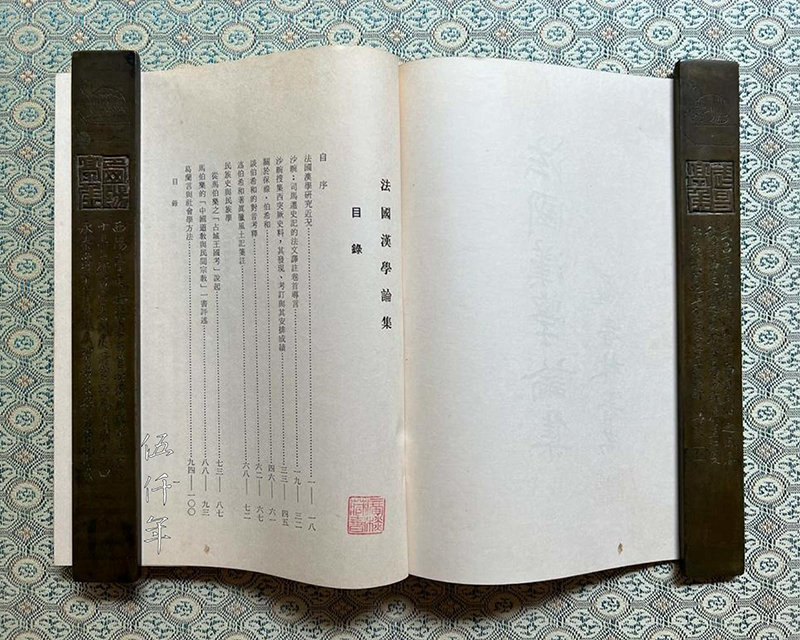
Inside page of Writings on French Sinology, with the seal impression of Prof. Ho Kwong-yim
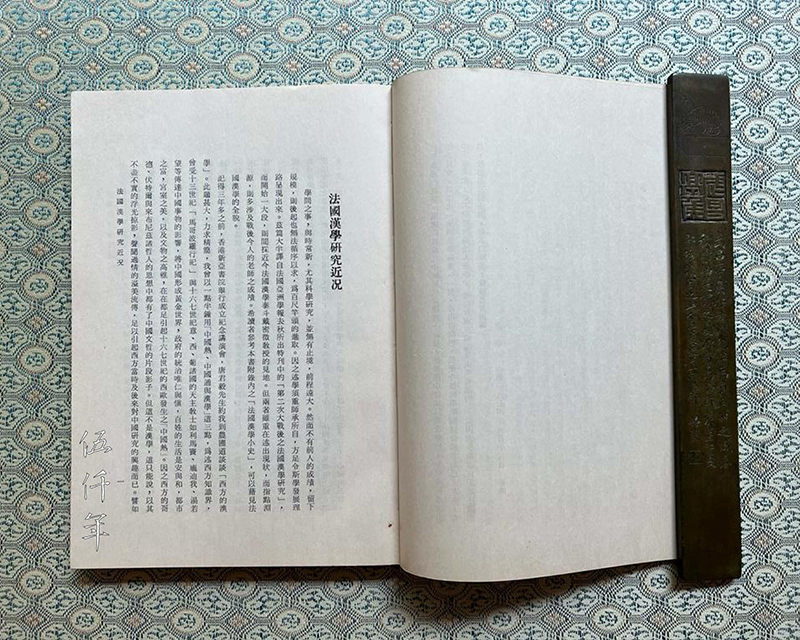
Inside page of Writings on French Sinology by Prof. Li Huang
‘This course emphasizes and explains the methodologies of Occidental scholars studying the literature and history of China. Regarding methodologies, they should be based on historical studies and social sciences. The skill of textual research in historical studies was originally the forte of Chinese scholars from the Chien-lung and Chia-ch’ing reigns. Their skill has also influenced Occidental sinologists. However, the nature of scholarship changes by days and differs by months. Since the end of 19th century, Western historical studies have gained huge strides. Their methodologies are getting finer and deeper. The results are impressive to see. In the last seventy years, there have been consecutive developments in the different branches of social sciences. All of them employ scientific methods to conceive their viewpoints. When the insights of historical studies and social sciences are used to attest the present and the past, China and the Occident, new meanings can subsequently surface forevermore.
Even though the work of textual research in literature and history can certainly rectify the practice of vacuity and the ridicule of exaggeration in writings, one should not overindulge in the minuscule, to see only the microscale and not the macroscale, to gratify pointlessly in trivial details and forget the expansive horizon. In the erudition of textual research, a small topic can indeed be treated as a big topic. But the purpose of doing so should be targeted on the rise and fall of dynastic period, the evolution and revolution of governance system, the directions of society, the interactions of culture, the obscurities of historical facts, all to be provided with plain instructions. Not to mention that the disarray and errors of classical texts are to be elucidated. Only by focussing on the larger picture, can academic distinction be exemplified.

Portrait of Prof. Ch’en Yin-k’ei
After paraphrasing these two passages, I will draw the students’ attention to the two volumes of The Collected Essays on Literature and History by Mr. Ch’en Yin-k’ei (Ch’en Yin-k’ei hsien-sheng wen-shih-lun chi 陳寅恪先生文史論集) published in Hong Kong, whereby they can seek inspiration from the broad erudition and deep scrupulousness of his scholarly method. Ch’en was born into a learned family. Apart from being extremely well read, he also acquired proficiencies in many ancient and modern languages around the world. As for the fastidiousness of his textual research, it has superseded that of the scholars from the Chien-lung and Chia-ch’ing reigns. As for the assiduousness of his writings, it helps us to understand the endeavors of modern Occidental Sinologists. Besides his books, his essays and articles that cover the minor topics in literature and history, consumed no lesser labour nor energy. They employed extensive references and quotations, they delved deep into meanings and reasonings, so that new meanings can be instantly revealed and our horizons extended. These skills possessed by Ch’en, are akin to the short essays of textual research and annotated words by the French Sinologist Paul Pelliot, which contain an abundance of scholarly gems. Both Ch’en and Pelliot were proficient in numerous languages, and their sensibilities were unconventional. An unresolved issue, an incongruous word, they did not lightly let go. Hence they were rewarded in the venues of broad erudition and deep scrupulousness.
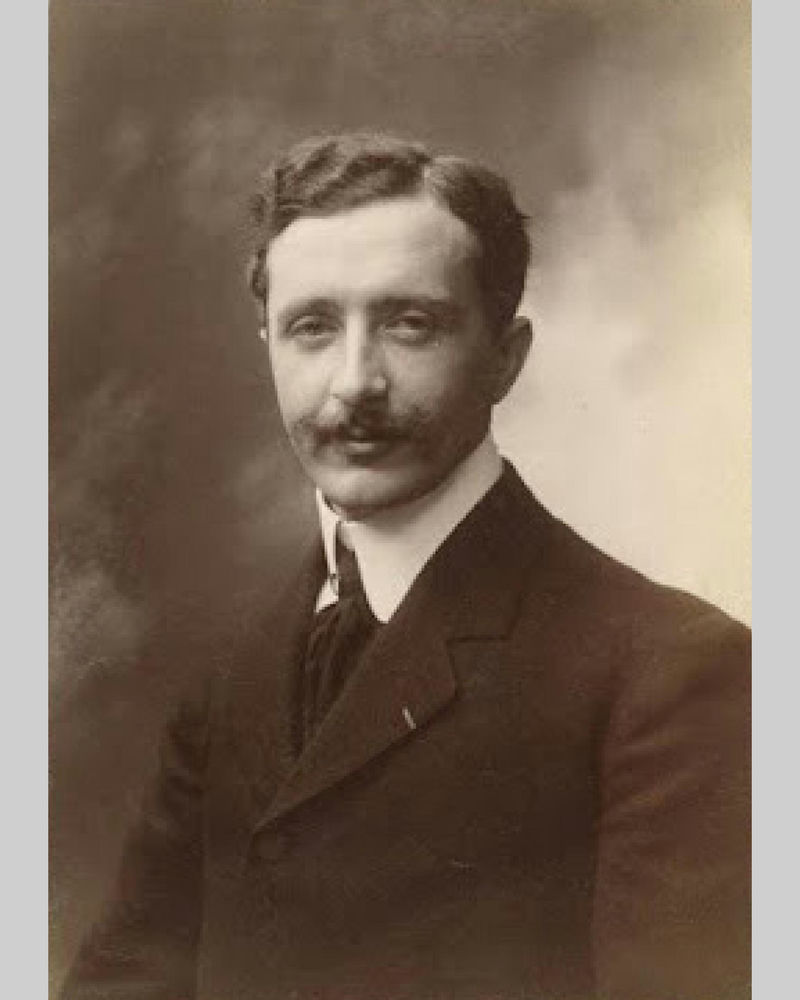
Portrait of Prof. Paul Pelliot
Unfortunately, in our time of upheaval, essays by Ch’en published in Chinese and overseas newspapers and journals are not easy to find. It is still impossible to have a complete prospect of his works. The recent publication of his essays in Hong Kong only consisted of sixty six essays. Documentation of his writings by scholars in Taiwan is also partial. Now Mr. Ho Kwong-yim has managed to compile ninety five essays and prepared an index. This is indeed proof of his dedication. Moreover, Mr. Ho has accentuated the chronological aspect of the index. He aspires to disclose the evolution of the scholarly interests and directions of Ch’en. This specifically illustrates that Mr. Ho has long harbored numerous insights into the scholarship of Ch’en. This is quite exceptional. I am therefore willing to write a Foreword for this Index.
11 May 1974,
Hong Kong.”
Respectfully reading the Foreword by Prof. Li Huang, his earnesty about teaching and its preparation are evident. The studying methods he advocated in his class are mostly gateways to knowledge for the students, who benefited from these methods in no small measure. He was also highly informed about the scholarship of Ch’en Yin-k’ei, in particular he validated and commended the broad erudition and deep scrupulousness of Ch’en. His actions are rare feats indeed. At the end of the Foreword, he wrote that “this is indeed proof of his dedication” and “Mr. Ho has long harboured numerous insights into the scholarship of Ch’en”. These words of encouragement from my teacher are kept in my heart, to be implemented vigorously throughout my life. I strive not to disappoint the expectation of as fine a teacher as Prof. Li.
Unfortunately, Prof. Lo Hsiang-lin died of liver cancer on 20 April 1978. Shortly, Prof. Li Huang immigrated to the United States, to live with his children and to enjoy family life. On 28 June 1984, he had an audience with President Chiang Ching-kuo (蔣經國 1910-1988) and was appointed senior advisor to the Presidential Administration of the Republic of China. Prof. Li then moved to Central New Village in Taipei. In Christmas that year, Prof. Wang Shao-sheng and myself travelled from Hong Kong to visit him. In our conversation, Prof. Li said that the reason he left America, was the fact that his wife had a stroke, medical costs were very expensive, and it was difficult to hire a helper. President Chiang Ch’ing-kuo appointed him to a prestigious position to serve the Republic of China just in time, and he made this decision on personal considerations.
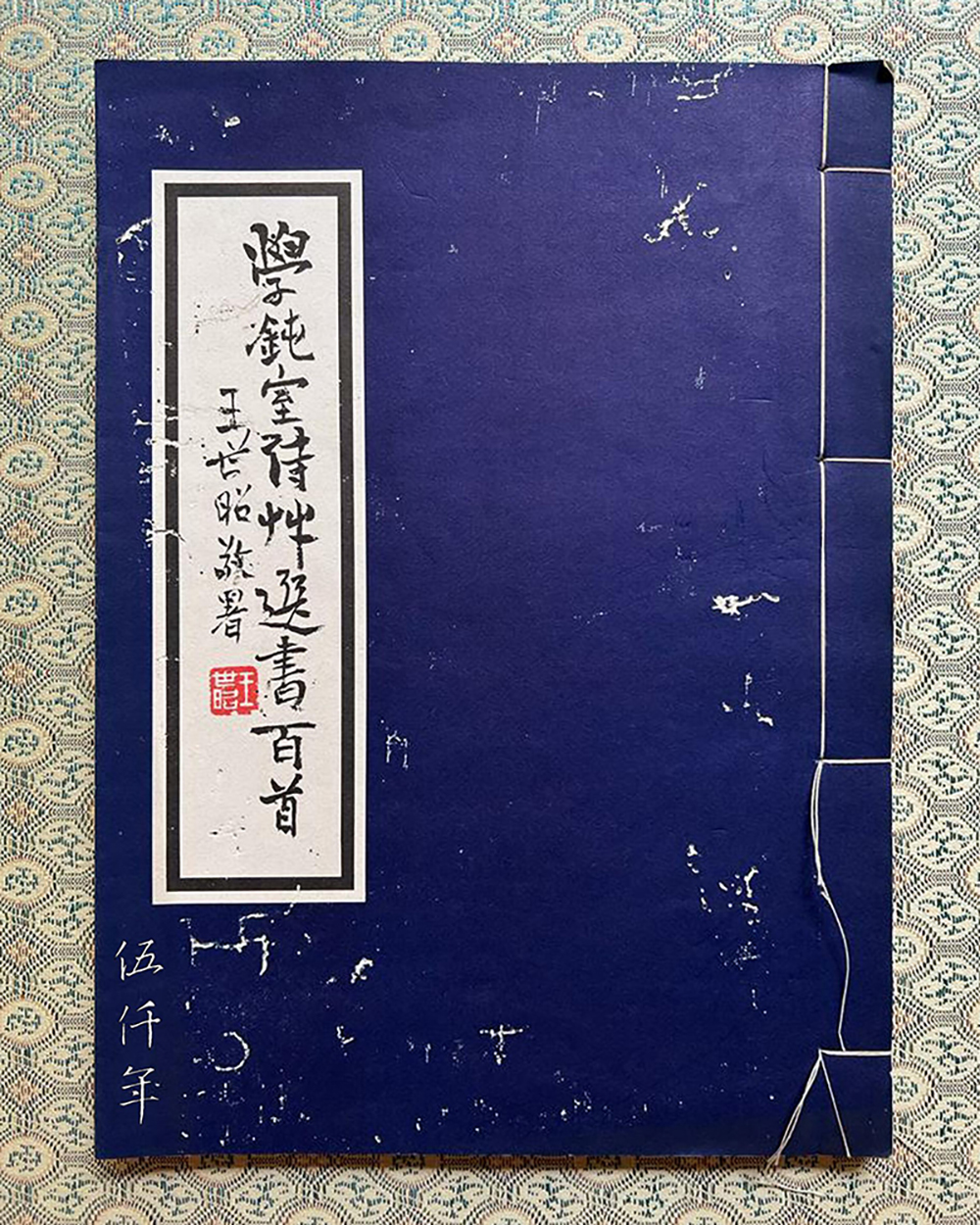
One Hundred Poems from the Studio of Hsüeh-ch’un by Prof. Li Huang
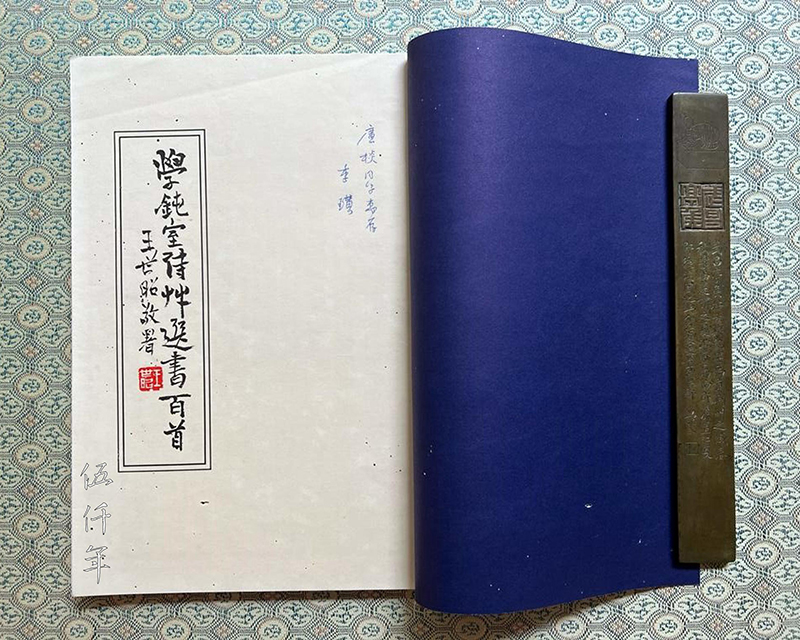
Inscription inside One Hundred Poems from the Studio of Hsüeh-ch’un by Prof. Li Huang
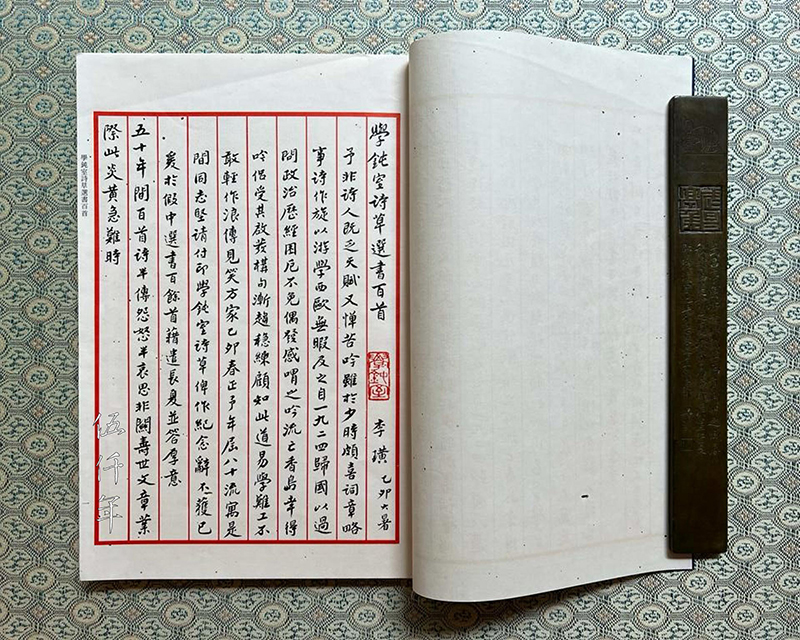
Inside page of One Hundred Poems from the Studio of Hsüeh-ch’un by Prof. Li Huang
Following the death of Prof. Lo Hsiang-lin and the relocation of Prof. Li Huang to the United States, Academician Fang Hao (方豪 1910-1980) also passed away. Prof. Wang Shao-shen was teaching at the New Asia Institute of Advanced Chinese Studies in Hong Kong. He invited me to study there to research the topic Ch’en Chen-sun (陳振孫 1179-1262) and His Elucidation of Books in the Collection of Chih-chai (直齋書録解題). I asked Prof. Wang to be my advising professor, and the title of my research was changed to A Study on the Life of Ch’en Chen-sun and his Writings. In September 1989, I enrolled at the Institute. In 1992, I completed the dissertation and attained the doctor’s degree. In July 1993, I was appointed associate professor at the Graduate Institute of Asian Humanities of Huafan University in Taiwan. I soon submitted my dissertation to the Ministry of Education of the Republic of China. I was promoted to professor and presented with the Cultural Renaissance Award. Years later, I was awarded the Second Division Order of Distinguished Service for Two Decades by the Executive Yuan of the Republic of China. In my spare time, I thoroughly researched the Elucidation of Books in the Collection of Chih-chai, and published the studies under six titles, a total of fourteen volumes with a few million characters. These were published by Huamulan Culture Press Co. Ltd. in 2016. My attainments are deeply indebted to the guidances and encouragements of Prof. Li Huang, Prof. Lo Hsiang-lin, Prof. Wang Shao-sheng.
Sadly, Prof. Li passed away on 15 November 1991 in Taipei, aged ninety six. I only started to teach at Huafan University in July 1993. If I were to teach in Taiwan any earlier, I could have spent more time with Prof. Li. Recalling the years when I was a student at the Research Institute of Chinese Literature and History of Chu Hai University, Prof. Li was living in Happy Valley and I in Causeway Bay. I visited him at his apartment whenever I was free. Prof. Li enjoyed French cuisine, and I was frequently invited to join him. Hence I had many opportunities to listen to his words and advice. Such fine gatherings are now only allocated to memory.
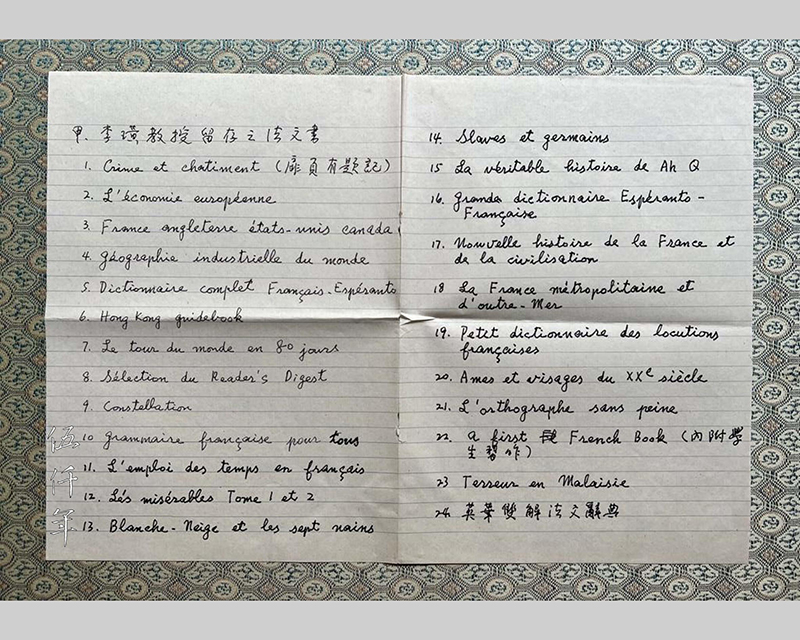
Catalogue of French Books in the Collection of Prof. Li Huang handwritten by Prof. Ho Kwong-yim
